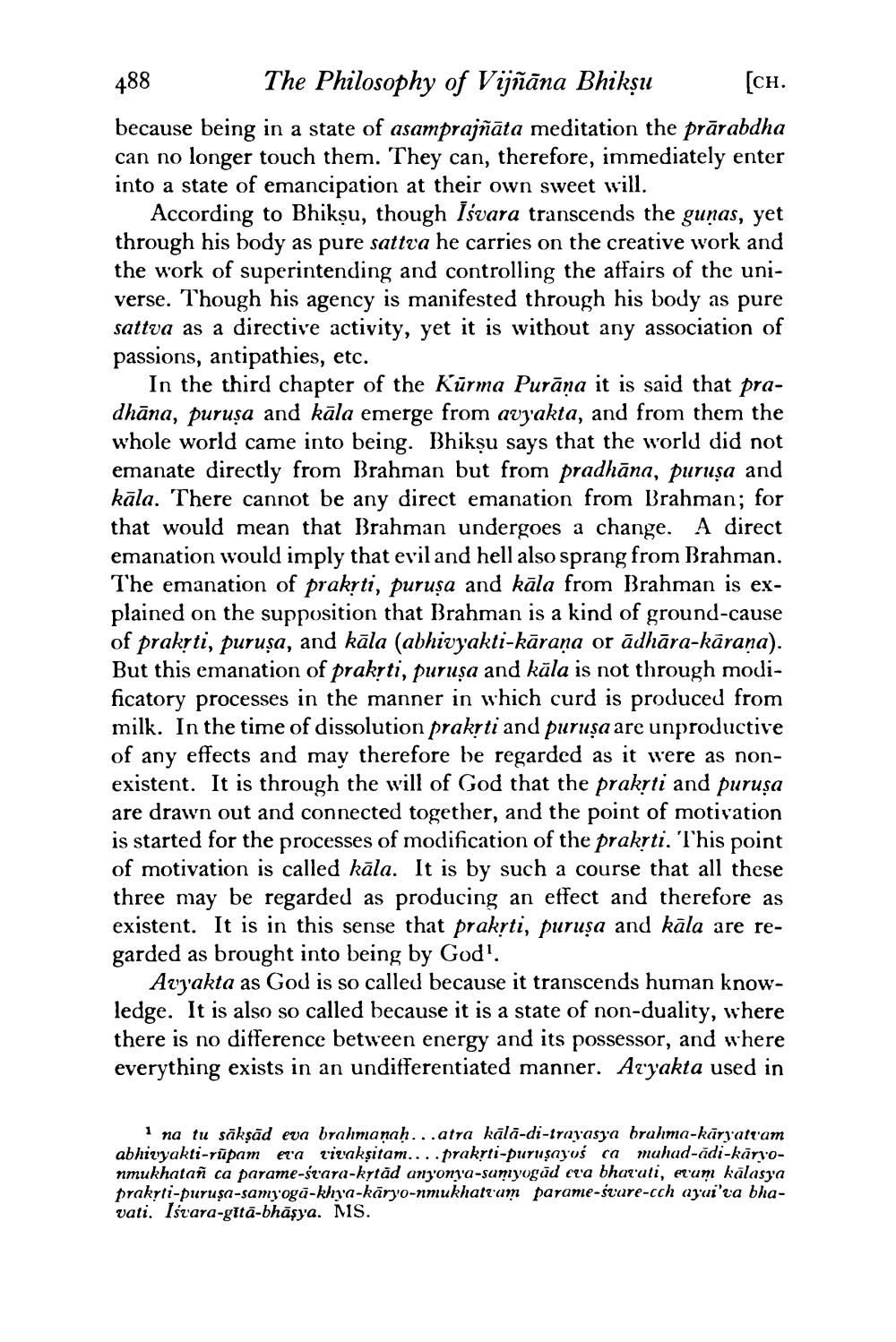________________
488
The Philosophy of Vijñāna Bhikṣu [ch. because being in a state of asamprajñāta meditation the prārabdha can no longer touch them. They can, therefore, immediately enter into a state of emancipation at their own sweet will.
According to Bhikṣu, though Isvara transcends the guņas, yet through his body as pure sattua he carries on the creative work and the work of superintending and controlling the affairs of the universe. Though his agency is manifested through his body as pure sattva as a directive activity, yet it is without any association of passions, antipathies, etc.
In the third chapter of the Kurma Purāna it is said that pradhāna, purușa and kāla emerge from avyakta, and from them the whole world came into being. Bhikṣu says that the world did not emanate directly from Brahman but from pradhāna, puruşa and kāla. There cannot be any direct emanation from Brahman; for that would mean that Brahman undergoes a change. A direct emanation would imply that evil and hell also sprang from Brahman. The emanation of prakrti, purușa and kāla from Brahman is explained on the supposition that Brahman is a kind of ground-cause of prakrti, puruṣa, and kāla (abhivyakti-kāraṇa or ādhāra-kārana). But this emanation of prakrti, puruşa and kāla is not through modificatory processes in the manner in which curd is produced from milk. In the time of dissolution prakrti and puruşa are unproductive of any effects and may therefore be regarded as it were as nonexistent. It is through the will of God that the prakrti and puruşa are drawn out and connected together, and the point of motivation is started for the processes of modification of the prakrti. This point of motivation is called kāla. It is by such a course that all these three may be regarded as producing an effect and therefore as existent. It is in this sense that prakrti, puruşa and kāla are regarded as brought into being by God!
Avyakta as God is so called because it transcends human knowledge. It is also so called because it is a state of non-duality, where there is no difference between energy and its possessor, and where everything exists in an undifferentiated manner. Aryakta used in
i na tu sākṣād eva brahmanah...atra kālā-di-trayasya brahma-karyattam abhivyakti-rūpam era ritaksitam.... prakti-purusayos ca mahad-adi-kārvonmukhatañ ca parame-stara-kytad anyonya-sumyogād er'a bharuti, erum kālasya prakrti-puruşa-samyoga-khya-kāryo-nmukhattam paranie-szure-cch aj'ui'ra bhavati. Isvara-gita-bhāşya. MS.




